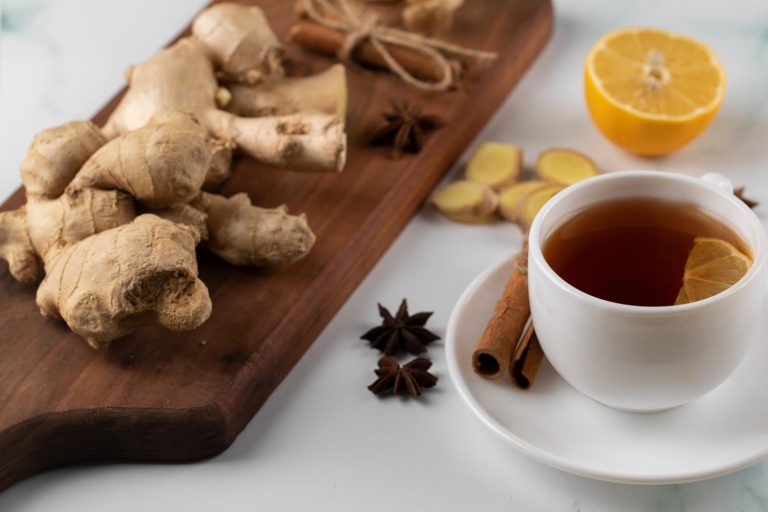Did you know your liver is one of the hardest-working organs in your body? It processes everything from the food you eat to the medications you take, and it plays a crucial role in detoxifying your system. With all that heavy lifting, it’s no wonder many people are on the lookout for natural ways to support liver health. And while you might think of liver health as something that requires complex diets or supplements, sometimes the simplest solutions can be found in a comforting cup of tea.
Here are five delicious teas that not only taste great but also come with potential liver health benefits. Let’s dive in!
Contents
1. Green Tea: The Antioxidant Powerhouse
Why It’s Great
Green tea is often hailed as a superfood, and for good reason. Packed with antioxidants, particularly catechins, it has been shown to improve liver function. A study published in the American Journal of Clinical Nutrition found that regular consumption of green tea could lower liver enzyme levels, indicating better liver health (Huang et al., 2010).
The Flavor Profile
Green tea has a light, grassy flavor with a hint of bitterness, which can be a refreshing change from sugary beverages. You can enjoy it hot or cold, and it pairs wonderfully with a squeeze of lemon or a sprig of mint.
Pros and Cons
Pros:
- Rich in antioxidants
- May lower liver enzyme levels
- Supports weight loss, which can also benefit liver health
Cons:
- Contains caffeine, which might not be suitable for everyone
- Some may find the taste too grassy
How to Enjoy It
Brew a cup of green tea using loose leaves or tea bags. Steep it for about 2-3 minutes for the best flavor. If you’re feeling adventurous, try matcha, a powdered form of green tea that can be whisked into smoothies or lattes.
2. Dandelion Root Tea: The Detox Champion
Why It’s Great
Dandelion root isn’t just a pesky weed; it’s been used for centuries in traditional medicine as a liver tonic. Dandelion contains compounds that may help stimulate bile production, aiding in digestion and detoxification. A study in the Journal of Ethnopharmacology found that dandelion extracts could protect the liver from damage (Zhao et al., 2016).
The Flavor Profile
Dandelion root tea has a slightly bitter, earthy flavor that some people love. It’s often blended with other herbs or sweeteners to make it more palatable.
Pros and Cons
Pros:
- Supports bile production
- Rich in antioxidants
- May help with digestion
Cons:
- The taste might be an acquired one
- Some people may experience mild digestive upset
How to Enjoy It
To make dandelion root tea, use dried root or pre-packaged tea bags. Steep in boiling water for about 10 minutes. Add honey or lemon to balance the bitterness if you like.
3. Milk Thistle Tea: The Liver Protector
Why It’s Great
Milk thistle is well-known for its liver-protective properties, thanks to a compound called silymarin. Research suggests that silymarin can help regenerate liver cells and protect against toxins. According to a review in Phytotherapy Research, milk thistle has been shown to have a positive impact on liver health (Saller et al., 2008).
The Flavor Profile
Milk thistle tea has a mild, slightly nutty flavor that is quite pleasant. It can be enjoyed on its own or blended with other herbal teas.
Pros and Cons
Pros:
- Supports liver cell regeneration
- May help with liver detoxification
- Generally well-tolerated
Cons:
- Some may experience allergic reactions
- It can interact with certain medications
How to Enjoy It
Brew milk thistle tea using the seeds or pre-packaged tea bags. Steep for about 10 minutes. You can enhance the flavor with a touch of lemon or ginger.
4. Ginger Tea: The Anti-Inflammatory Ally
Why It’s Great
Ginger isn’t just a staple in cooking; it’s also a powerful anti-inflammatory. Its anti-inflammatory properties may help protect the liver from damage and support overall health. A study published in the Journal of Nutrition suggests that ginger can improve liver function and reduce oxidative stress (Jiang et al., 2016).
The Flavor Profile
Ginger tea has a warm, spicy flavor that can be very comforting. It’s especially popular in the colder months but is refreshing year-round.
Pros and Cons
Pros:
- Anti-inflammatory properties
- Supports digestion
- Can help with nausea
Cons:
- May cause heartburn in some people
- Strong flavor might not be for everyone
How to Enjoy It
To make ginger tea, slice fresh ginger and steep it in boiling water for about 10 minutes. You can add honey or lemon for extra flavor. For a twist, try adding a pinch of turmeric, which also has liver-supportive benefits.
5. Peppermint Tea: The Digestive Soother
Why It’s Great
Peppermint tea is not only refreshing but also beneficial for digestion. Its menthol content can help soothe the digestive tract and promote bile flow, which is essential for liver health. While more research is needed, some preliminary studies suggest that peppermint may have a positive effect on liver function (Khan et al., 2016).
The Flavor Profile
Peppermint tea has a cool, refreshing taste that’s great hot or iced. It’s a fantastic palate cleanser and can be enjoyed at any time of the day.
Pros and Cons
Pros:
- Supports digestion
- Refreshing flavor
- Naturally caffeine-free
Cons:
- May cause heartburn in some people
- Not everyone enjoys minty flavors
How to Enjoy It
Brew peppermint tea using fresh leaves or tea bags. Steep for about 5-7 minutes. To enhance the experience, consider adding a splash of lemon or a pinch of honey.
FAQs
1. How can I incorporate these teas into my daily routine?
You can start by swapping one of your daily beverages for a cup of one of these teas. For example, replace your afternoon coffee with ginger or peppermint tea for a refreshing change.
2. Are there any side effects to consider?
While these teas are generally safe, it’s essential to be mindful of any allergies or interactions with medications. Always consult your healthcare provider if you have concerns.
3. Can these teas be used as a substitute for medical treatment?
No, these teas should complement a healthy lifestyle and not replace professional medical advice or treatment. Always consult a healthcare provider for liver health concerns.
4. How much tea should I drink for liver health?
Moderation is key. One to three cups a day is generally considered safe and beneficial for most people.
Conclusion
Incorporating these delicious teas into your routine can be a simple yet effective way to support your liver health. Whether you prefer the grassy notes of green tea or the spicy warmth of ginger, there’s a tea out there that can suit your taste and help you feel your best. Remember, while these teas can provide benefits, they should complement a balanced diet and a healthy lifestyle.
So, grab your favorite mug, brew a cup, and toast to your liver health!
Disclaimer: This article is for educational purposes only and is not a substitute for professional medical advice. Always consult a qualified healthcare provider before making changes to your health routine.
References
- Huang, Y., et al. (2010). Green tea consumption and liver enzyme levels: A cross-sectional study. American Journal of Clinical Nutrition. https://academic.oup.com/ajcn/article/91/2/487/45932
- Zhao, Y., et al. (2016). Protective effects of dandelion extracts on liver injury. Journal of Ethnopharmacology. https://www.sciencedirect.com/science/article/pii/S0378874116310572
- Saller, R., et al. (2008). Milk thistle: A review of its efficacy and safety. Phytotherapy Research. https://onlinelibrary.wiley.com/doi/full/10.1002/ptr.2288
- Jiang, Y., et al. (2016). Ginger and its active constituents in liver protection. Journal of Nutrition. https://academic.oup.com/jn/article/146/1/165/45851
- Khan, M. A., et al. (2016). The potential of peppermint as a hepatoprotective agent. Journal of Herbal Medicine. https://www.sciencedirect.com/science/article/pii/S2210803315000466
Get Your FREE Natural Health Guide!
Subscribe now and receive our exclusive ebook packed with natural health tips, practical wellness advice, and easy lifestyle changes, delivered straight to your inbox.





